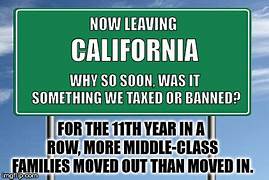You won’t be able to bring that plastic bottle of water with you into the San Fran Airport. Those will have lived in the marijuana filled air for too long have decided you will kill the planet if you drink from a plastic bottle of Arrowhead water. On the other hand the massive plastics the airport buys is “good plastic”—so they are saving the earth.
“The airport’s director, Ivar Satero, said the expanded plastic bottle ban is the “next step towards a plastic-free future.” That’s a bold claim for a facility that requires a lot of plastic security equipment, cleaning tools, and seating. While the idea of a “plastic-free future” is a bit silly, wanting to keep the planet clean is a laudable goal. SFO’s ban on plastic bottles, however, is unlikely to help.
This is a rule not to be judged, but laughed at. Another example of power going to the low common sense employees of government. In other words the government is can anything it wants and command the public to kowtow to the junk science of bureaucrats looking for an excuse to be superior.
—
SFO’s Baffling Bottle Ban Isn’t Helping the Planet

By Will Coggin, Essential Plastics Coalition, EXCLUSIVE TO THE CALIFORNIA POLITICAL NEWS AND VIEW, 5/5/21
San Francisco International Airport became the first airport in the nation to ban plastic water bottles in 2019. Recently, it expanded its ban to include any plastic bottle.
The airport’s director, Ivar Satero, said the expanded plastic bottle ban is the “next step towards a plastic-free future.” That’s a bold claim for a facility that requires a lot of plastic security equipment, cleaning tools, and seating. While the idea of a “plastic-free future” is a bit silly, wanting to keep the planet clean is a laudable goal. SFO’s ban on plastic bottles, however, is unlikely to help.
At SFO, beverages can only be sold in glass bottles or aluminum cans. The inconvenience of having to buy heavy, breakable glass bottles or aluminum cans that cannot be resealed will likely bother passengers, but the flaws of this plan extend beyond the inconvenience. Both aluminum and glass carry hidden environmental dangers that are often ignored amid calls to ban plastic.
The production of glass bottles is energy-intensive. According to a study from the Centre for Environmental Policy at Imperial College London, if all the plastic bottles used today were made of glass instead, the additional carbon emissions produced would be equal to the amount of carbon that would be released by 22 large coal-fired power plants — enough electricity to power a third of the United Kingdom.
Beyond production, glass is significantly heavier than plastic. The added weight means more fuel is required to transport truckloads to the airport, leading to more carbon emissions. One study from the University of Southampton found that glass was the worst packaging material as it relates to the amount of greenhouse gas emissions.
Aluminum is better for the planet than glass, but it still has some dirty secrets. Aluminum is sourced from bauxite strip mines. The chemicals released from the process are toxic and they have been known to render nearby water supplies unsafe. Most bauxite is sourced outside of the United States where environmental regulations are not strict.
The damaging effects of aluminum and glass are somewhat mitigated by recycling, but the same can be said for PET plastic. PET plastic, like glass and aluminum, can be recycled into new bottles. SFO can still be a zero-waste airport even if plastic bottles are on the shelves.
And while SFO’s goal is to be a zero-waste airport, there is no guarantee that any traveler’s final destination will be one where glass can be recycled. Many communities throughout the U.S. have halted curbside glass recycling because the breakable shards contaminated other recycling, including paper and plastic recycling.
Plastic bottles are flexible and resealable which makes them great for travel, an asset that should be an airport priority. If travelers can place their glass and aluminum in the recycling bin, they can just as easily recycle their plastic bottles. Recycling, after all, is the ultimate way to transform something from “single-use” to “multiple-use.”
SFO, like many other facilities throughout the country, has been misled into believing all “single-use” plastics are the same. Some plastics, such as bags, polystyrene take-out containers, and straws, are wasteful because they cannot be easily recycled and they have alternatives that are actually better for the planet. Plastic bottles are not the same. They can be recycled and their alternatives are not better for the environment.
With the TSA forbidding more than three ounces of liquid from being carried into the airport, travelers shouldn’t be stuck with a breakable or unsealable beverage container just because airport officials have wrongly demonized plastic bottles. This policy is bad for travelers and bad for the planet.
Will Coggin is the managing director of the Essential Plastics Coalition.



